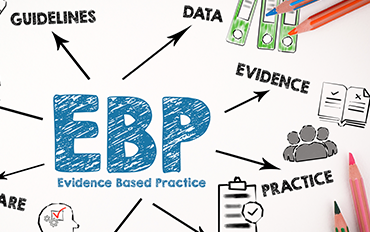Aging often brings with it unique challenges in how we experience aspects of our everyday lives. Maintaining one’s health or receiving adequate care for health concerns is often a sign of independence and autonomy. However, what if the same challenges that are characteristic of older age are also barriers to receiving support? Researchers describe the “aging tsunami” as the growing number of individuals living longer while grappling with physical and mental age-related changes (Reynolds, Jeste, Sachdev, & Blazer, 2022).
Furthermore, researchers have projected that by 2050, more than 20% of individuals 55 or older will struggle with some form of mental health problem (de Mendonça & Ivbijaro, 2013). The elderly struggle with similar mental health issues as younger adults, like schizophrenia, bipolar disorder, and PTSD (National Council on Aging, 2023), with the most common issues being anxiety and depression. What is more alarming is that globally, individuals 60 years and older account for 27% of suicide rates. Despite the need to connect with a mental health provider, statistics show that only 63% of the elderly receive this help (Elshaikh et al., 2023 & Mackenzie et al., 2008).
Mental health concerns in the elderly population are underrecognized and untreated. Untreated mental health issues not only impact one’s quality of life but can exacerbate other age-related disorders and vice versa (United States Public Health Service Office of the Surgeon General Mental Health,1999; de Mendoca Lima & Ivbijaro, 2013). Mental illness in the elderly community is a complex issue that requires us as researchers and clinicians to bring awareness of the challenges this group faces and, likewise, bring about unique solutions for their overall well-being.
Challenges to accessibility
There is no doubt that the elderly population’s experience with mental illness looks different due to unique barriers to accessibility. Some of these barriers include: a lack of awareness of their own mental health, financial and physical constraints to accessing adequate care, and even societal and personal stigma attached to mental illness. Yet, once they do seek help for their mental health, their concerns are often normalized as part of old age. Despite being considered one of our most vulnerable populations, there is a tendency to devalue mental health, thereby further compounding the issue of accessibility of mental health services.
One major challenge the elderly face in accessing mental health services is their lack of awareness of mental health issues. The elderly may struggle to identify symptoms of mental health issues accurately and, moreover, explain their symptoms to a qualified clinician. Thereby reducing the chances of getting care for a mental illness. For many elderly individuals, mental health issues are viewed as something that can be managed without professional support. Thus, this nonchalant perspective can extend the symptoms associated with a mental illness further into old age and place a strain on the person’s daily life, family, and friends (Piper et al., 2018; Shankar & Senthil, 2007; & Thompson et al., 2008).
In addition to the limited understanding of mental health issues, the stigma surrounding mental illness may also be a factor in the accessibility of services. Society’s negative perceptions about both aging and mental illness can create an overwhelming barrier for the elderly. Their reluctance to identify with both stigmatized groups, being ‘elderly’ and having a ‘mental illness,’ could lead them to resist acknowledging or seeking help for mental health concerns (Farrer et al. 2008; Fisher & Goldney, 2003; & Reavley, Morgan, & Jorm 2013). Many might find it more manageable to acknowledge only their age-related challenges while avoiding the additional stigma of a mental health diagnosis. As such, the greatest challenge impacting the accessibility of mental health services for the elderly is related to their mental health literacy.
Another challenge the elderly face in accessing mental health services is that of financial constraints. Many elderly individuals regularly face housing and food insecurity (Pooler et al., 2018), all while navigating ailing health and loss of family and friend support (Shear, Ghesquiere, & Glickman, 2013). It is no wonder that attending to one’s own mental health can seem like a luxury in relation to the other issues this group is up against. Therefore, in reimagining solutions to this issue, we need to address ways to minimize both physical and financial constraints to the accessibility of services.
While it can be difficult for medical providers to assess which diagnosis takes precedence for treatment, more often than not, the medical diagnoses become the focus of treatment, and the mental health issue falls into the background.
Another challenge impacting the accessibility of mental health services for this population is the perception of mental health by the medical community. First, mental health issues like depression can go undiagnosed or misdiagnosed. This is especially so as some of the symptoms can resemble dementia or Alzheimer’s (Zenebe et al., 2021). In a 2011 study, researchers found that depression symptoms went undiagnosed by primary care providers almost 50% of the time (Mitchell, Rao, & Vaze., 2010 & Park & Unützer, 2011 ). While it can be difficult for medical providers to assess which diagnosis takes precedence for treatment, more often than not, the medical diagnoses become the focus of treatment, and the mental health issue falls into the background. (Batten, 2019).
Secondly, mental health issues are typically seen as a byproduct of old age, and thus, it is not necessary to seek help. This perspective can be seen by both the medical community and the elderly (McCabe Davison, Mellow & George, 2009; Sarkisian, Lee-Henderson, & Mangione, 2003; Wuthrich & Frei, 2015). For many elderly individuals, when they do perceive they have a mental health concern, they often rationalize it as part of the aging process. As such, in addition to experiencing physical limitations, it is understood that other limitations might follow.
Recommendations for systemic change
So, as multifaceted as this issue is, potential resolutions require a systemic approach. We must address changes at the individual and societal levels.
Systemic changes on an individual level
Specifically, to address the issue of awareness about mental health concerns, this starts with increasing mental health literacy. Mental health literacy is the knowledge and beliefs about mental health conditions that aid in recognizing, managing, and preventing health concerns (Kim et al., 2017). By empowering elderly individuals with knowledge about their own mental health and its implications for their overall well-being, they can better advocate for their needs.
Increasing mental health literacy may require us as clinicians to change how we assess mental health in the elderly. This may require separating out the mental health concern from any other preexisting medical issues to understand the true implications of the mental health issue on its own. Additionally, increasing mental health literacy requires engaging in conversations about mental health as a routine aspect of overall wellness, similar to managing other chronic medical conditions. This parallel helps reframe treatment for mental health issues as a standard component of therapeutic services rather than a stigmatized separate entity.
Another individualized way to increase the accessibility of mental health services for the elderly is by increasing the visibility of mental health services in places that the elderly often frequent, such as community centers, doctors’ offices, and retirement facilities. This not only makes mental health services more accessible, but the services are built into systems the elderly are already familiar with, therefore fostering trust. Along with creating convenient locations for mental health services, we must establish an integrative model that connects the client with various medical, mental health, and social services to provide holistic care. Lastly, we must consider how to make mental health services affordable for everyone to access.
 As clinicians, we can also support our elderly clients by adopting client-specific therapeutic approaches to best meet the needs of these individuals (Biering, 2018). To this extent, as clinicians, we must identify ways to encourage the elderly to prioritize their mental health. This may require us to shift the narrative from viewing mental health support as optional to recognizing it as a vital aspect of overall well-being.
As clinicians, we can also support our elderly clients by adopting client-specific therapeutic approaches to best meet the needs of these individuals (Biering, 2018). To this extent, as clinicians, we must identify ways to encourage the elderly to prioritize their mental health. This may require us to shift the narrative from viewing mental health support as optional to recognizing it as a vital aspect of overall well-being.
Systemic changes on a societal level
Societally, there are ways to change the narrative of how we view mental illness. Increasing awareness of mental health issues will push back against the stigma of mental illness as something that personifies weakness or vulnerability. As clinicians, we can advocate for awareness and acceptance of mental health and those living with mental illnesses. Additionally, we can reduce the stigma by bringing up mental health in our conversations with clients and not shying away from issues we see. Through these intentional efforts to normalize mental health discussions and treatment, we can create a more supportive and understanding environment where seeking help is viewed as a sign of strength rather than weakness.
Furthermore, normalizing mental health issues as part of the aging process may not only reduce the likelihood that the individual will seek help for their mental health, but it may also shape the elderly person’s perspective of seeing old age and mental illness as limiting. If however, we could reimagine the aging process to be more of a healthy progression, as explained by Schaie (2016), where the person’s psychological functioning maintains consistency as the years progress or the individual experiences some decline in their physical or cognitive abilities but nothing drastic, the elderly might be more likely to seek professional intervention when changes in their health go against what is expected for a certain age. Ultimately, this shift in perspective provides a more hopeful, stepwise outlook on one’s health rather than swooping changes over a short period of time.
“Triple Stigma”
The unique factors associated with the elderly that also serve as barriers to accessing mental health services can seem exhaustive, and yet I would be remiss if I did not acknowledge that some elderly individuals face a further barrier of being part of another marginalized community that makes accessibility that much more challenging, as these intersecting identities often create compounded barriers to seeking and receiving appropriate mental healthcare. Aspects of one’s identity, such as race, ethnicity, sexual orientation, physical ability, etc., can add another element to the inaccessibility of mental health services. These individuals experience a “triple stigma” attached to their multiple identities and still need to access adequate mental healthcare (Jimenez et al., 2013).
Finally, as we see systems collapsing that in the past have disenfranchised various groups from receiving mental health, we begin to value the perspective of mental health for all. Additionally, dismantling the paradigm that mental health should be seen as secondary to one’s physical health requires us to see just how bidirectional these issues are. Lastly, as we work collaboratively with medical professionals, community agencies, and the elderly, we can envision a plan that educates about mental health, empowers individuals to advocate for holistic services, and champions emotional, physical, and psychological well-being. These are some of the steps to implement change in our current system.

Denise Williams, PhD, LMFT, is an AAMFT Professional member holding the Clinical Fellow and Approved Supervisor designations, and an Associate Professor of Marriage & Family Counseling/Therapy Counseling at Indiana Wesleyan University. Dr. Williams earned her PhD in Marriage and Family Therapy from Texas Tech University. She also earned her MA in Rehabilitation & Mental Health Counseling and BA in Psychology from the University of South Florida. Her research projects have included issues impacting marginalized communities, couple issues, and supervision. In addition to her scholarly work, she has written several peer-reviewed articles in The American Journal of Family Therapy, The Qualitative Report, Journal of Gender Studies, and a book chapter in Transforming Students into Leaders Through the Literary Arts and the Social Sciences. As a professor and researcher, Dr. Williams stays current with the trends in therapy. She has given national and international presentations on a variety of therapy-related topics. She continues to serve as a mentor and advocate for new clinicians in the field. denise.williams2@indwes.edu
Batten, G. (2019, February). Normalising mental illness in older adults is a barrier to care. Australian Institute of Family Studies. https://aifs.gov.au/resources/short-articles/normalising-mental-illness-older-adults-barrier-care
Biering, P. (2019). Helpful approaches to older people experiencing mental health problems: A critical review of models of mental health care. European Journal of Ageing, 16, 215–225. https://doi.org/10.1007/s10433-018-0490-3
Center for Mental Health Services, Substance Abuse and Mental Health Services Administration. (2005). Mentally healthy aging: A report on overcoming stigma for older Americans (DHHS Publication No. SMA 05-3988). Center for Mental Health Services, Substance Abuse and Mental Health Services Administration.
de Mendonça Lima, C. A., & Ivbijaro, G. (2013). Mental health and wellbeing of older people: Opportunities and challenges. Mental Health in Family Medicine, 10(3), 125-127.
Elshaikh, U., Sheik, R., Saeed, R. K. M., Alhadi, A. N., Alsubaie, S. S., Alqahtani, S. A., Alshahrani, M. S., Alqahtani, A. S., Alqahtani, A. M., & Alqahtani, S. A. (2023). Barriers and facilitators of older adults for professional mental health help-seeking: A systematic review. BMC Geriatrics, 23, 516. https://doi.org/10.1186/s12877-023-04229-x
Farrer, L., Leach, L., Griffiths, K. M., Christensen, H., & Jorm, A. F. (2008). Age differences in mental health literacy. BMC Public Health, 8, 125. https://doi.org/10.1186/1471-2458-8-125
Finestone, H. M., & Blackmer, J. (2007). Refusal to eat, capacity, and ethics in stroke patients: A report of 3 cases. Archives of Physical Medicine and Rehabilitation, 88, 1474–1477. https://doi.org/10.1016/j.apmr.2007.07.01
Fisher, L. J., & Goldney, R. D. (2003). Differences in community mental health literacy in older and younger Australians. International Journal of Geriatric Psychiatry, 18(1), 33-40. https://doi.org/10.1002/gps.769
Jimenez, D. E., Bartels, S. J., Cardenas, V., & Alegría, M. (2013). Stigmatizing attitudes toward mental illness among racial/ethnic older adults in primary care. International Journal of Geriatric Psychiatry, 28, 1061-1068. https://doi.org/10.1002/gps.3928
Kim, Y. S., Lee, H. Y., Lee, M. H., Simms, T., & Park, B. H. (2017). Mental health literacy in Korean older adults: A cross-sectional survey. Journal of Psychiatric and Mental Health Nursing, 24(7), 523-533. https://doi.org/10.1111/jpm.12395
Mackenzie, C. S., Scott, T., Mather, A., & Sareen, J. (2008). Older adults’ help-seeking attitudes and treatment beliefs concerning mental health problems. American Journal of Geriatric Psychiatry, 16, 1010-1019.
McCabe, M. P., Davidson, T., Mellor, D., & George, K. (2009). Barriers to care for depressed older people: Perceptions of aged care among medical professionals. International Journal of Aging and Human Development, 68(1), 53–64.
National Council on Aging. (2023, September 29). Mental illness and older adults: What to know about symptoms and treatment. https://www.ncoa.org/article/mental-illness-and-older-adults-what-to-know-about-symptoms-and-treatment/
Mitchell, A. J., Rao, S., & Vaze, A. (2010). Do primary care physicians have particular difficulty identifying late-life depression? A meta-analysis stratified by age. Psychotherapy and Psychosomatics, 79(5), 285–294. https://doi.org/10.1159/000318295
National Council on Aging. (n.d.). Why we must address the rising mental health needs of our growing older adult population. https://www.ncoa.org/article/why-we-must-address-the-rising-mental-health-needs-of-our-growing-older-adult-population/
Park, M., & Unützer, J. (2011). Geriatric depression in primary care. Psychiatric Clinics of North America, 34(2), 469-487. https://doi.org/10.1016/j.psc.2011.02.009
Piper, S. E., Bailey, P. E., Lam, L. T., & Kneebone, I. I. (2018). Predictors of mental health literacy in older people. Archives of Gerontology and Geriatrics, 79, 52-56.
Pooler, J. A., Hartline-Grafton, H., DeBor, M., Sudore, R. L., & Seligman, H. K. (2019). Food insecurity: A key social determinant of health for older adults. Journal of the American Geriatrics Society, 67(3), 421-424. https://doi.org/10.1111/jgs.15736
Reavley, N. J., Morgan, A. J., & Jorm, A. F. (2013). Development of scales to assess mental health literacy relating to recognition of and interventions for depression, anxiety disorders and schizophrenia/psychosis. Australian & New Zealand Journal of Psychiatry, 48(1), 61-69. https://doi.org/10.1177/0004867413491157
Reynolds, C. F., Jeste, D. V., Sachdev, P. S., & Blazer, D. G. (2022). Mental health care for older adults: Recent advances and new directions in clinical practice and research. World Psychiatry, 21(3), 336-363. https://doi.org/10.1002/wps.20996
Sarkisian, C. A., Lee-Henderson, M. H., & Mangione, C. M. (2003). Do depressed older adults who attribute depression to “old age” believe it is important to seek care? Journal of General Internal Medicine, 18(12), 1001-1005.
Schaie, K. W. (2016). Theoretical perspectives for the psychology of aging in a lifespan context. In K. W. Schaie & S. L. Willis (Eds.), Handbook of the psychology of aging (8th ed., pp. 3-13). Academic Press. https://doi.org/10.1016/B978-0-12-411469-2.00001-7
Shankar, J., & Muthuswamy, S. S. (2007). Support needs of family caregivers of people who experience mental illness and the role of mental health services. Families in Society, 88(2), 302-310. https://doi.org/10.1606/1044-3894.3628
Shear, M. K., Ghesquiere, A., & Glickman, K. (2013). Bereavement and complicated grief. Current Psychiatry Reports, 15(11), 206–219. https://doi.org/10.1007/s11920-013-0406-z
Thompson, A., Issakidis, C., & Hunt, C. (2008). Delay to seek treatment for anxiety and mood disorders in an Australian clinical sample. Behaviour Change, 25(2), 71–84. https://doi.org/10.1375/bech.25.2.71
United States Public Health Service Office of the Surgeon General. (1999). Mental health: A report of the Surgeon General. NIMH. http://profiles.nlm.nih.gov/ps/retrieve/ResourceMetadata/NNBBHS
Wuthrich, V. M., & Frei, J. (2015). Barriers to treatment for older adults seeking psychological therapy. International Psychogeriatrics, 27(7), 1227–1236.
Zenebe, Y., Akele, B., W/Selassie, M., & Necho, M. (2021). Prevalence and determinants of depression among old age: A systematic review and meta-analysis. Annals of General Psychiatry, 20(1), 55. https://doi.org/10.1186/s12991-021-00375-x
Other articles
Psychogastroenterology: A Beginner’s Guide for Mental Health Clinicians
Over 60 million Americans suffer from gastrointestinal disorders (GI), yet only about 25% receive treatment for their symptoms (Knowles et al., 2019; National Institutes of Health & U.S. Department of Health and Human Services, 2009). Common manifestations include acid reflux, bloating, bowel irregularities (e.g., constipation, diarrhea, incontinence), nausea, abdominal pain, and vomiting.
Jerrod Brown, PhD, Jeremiah Schimp, PhD, Shelley Mydra, DMFT, Jennifer Sweeton, PsyD, & Leanne Skehan, DCN
Ketamine-Assisted Psychotherapy: Relational Healing in Couples and Families
Positive relationships and social connection are essential for human flourishing and thought to be key for long-term happiness, longevity, and wellness. However, utilizing evidence-based systemic therapies alone may not be the solution for everyone, and psychedelics may provide an innovative way to facilitate relational healing.
Jennifer Cahill, PhD
Outcomes Framework for Supervision: The Acid-Test
After a century of psychotherapy supervision and over half a century of supervision research, what do we know empirically about the contribution of psychotherapy supervision to patient outcomes (Watkins, 2011; Watkins, 2020; Callahan & Watkins, 2018)? According to reviews conducted by Watkins (2011; 2020), we still don’t know much. This was the conclusion of Watkins after his initial review of 30 years of psychotherapy research (2011).
H. Charles Fishman, MD, Misti Sparks, PhD, & Violeta Kadieva, PhD



